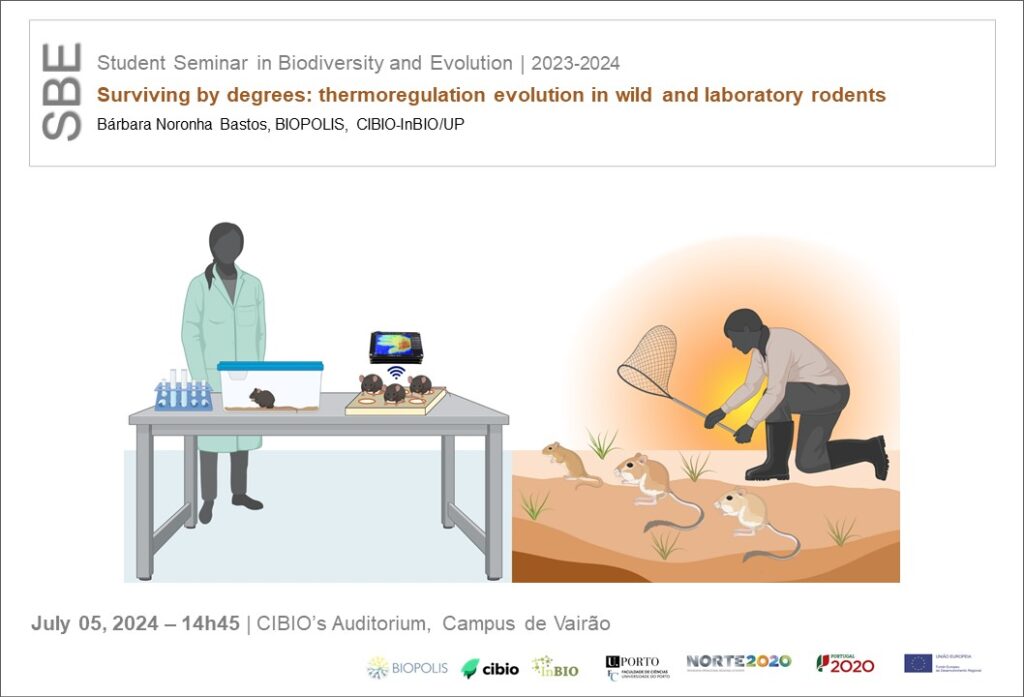Surviving by degrees: thermoregulation evolution in wild and laboratory rodents
Bárbara Noronha Bastos, BIOPOLIS, CIBIO-InBIO/UP
July 05, 2024 | 14h45 | CIBIO’s Auditorium, Campus de Vairão

Understanding the evolutionary mechanisms of thermoregulation in mammals is crucial for deciphering their adaptation to environmental changes. Using integrative research, we first decoded the molecular mechanisms of thermoregulation in 21 rodents, complying 52 genes of three different strategies (homeothermy, daily heterothermy and hibernation). We examined their genetic homology, signs of positive selection, protein adaptations, and protein-protein interaction networks associated with protein modifications. We observed conservation of thermoregulatory genes, with daily heterotherms and hibernators showing higher selection signs and faster adapting physiological networks, compared to homeotherms, highlighting their ability to cope with dynamic environmental challenges. Second, to understand the molecular control of thermoregulation, we studied wild rodent species, focusing on African heterotherms. These live in unpredictable, harsh, and sometimes desert conditions, where species usually benefit from having fast adaptation mechanisms to survive. We looked at the particularities of their proteins to see how their ability to cope with dynamic environments evolved. Third, we are studying how the expression and physiology of these genes varies from birth to early adulthood in laboratory mice (Mus musculus, C57BL/6J) in a controlled environment. Mice pups are born poikilothermic, relying on environment to thermoregulate, achieving endothermy and then being able to express facultative heterothermy as adults. We aimed to identify the poikilothermy-endothermy transition point and the genetic underpinnings of this process. Using an innovative contactless, wireless, stress-reducing approach, we monitored superficial and subcutaneous body temperature fluctuations. We found that endothermy sets before weaning age in all 11 litters. Integrating these findings provides a comprehensive understanding of the evolutionary mechanisms driving thermoregulation in mammals, being informative for conservation efforts regarding ongoing climate changes.
More information here.